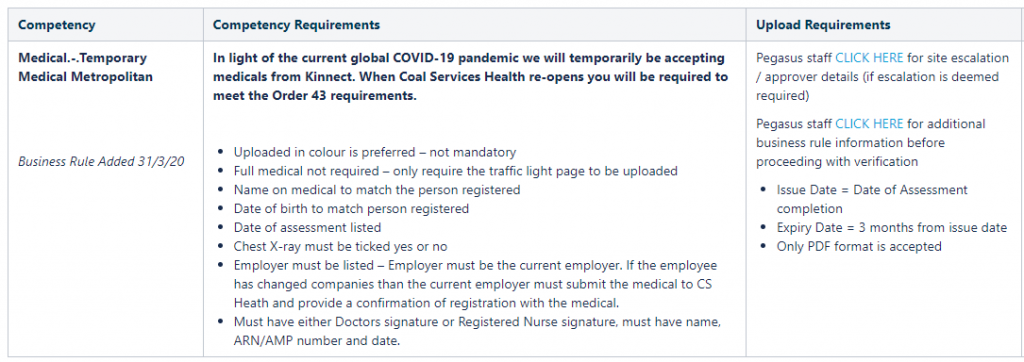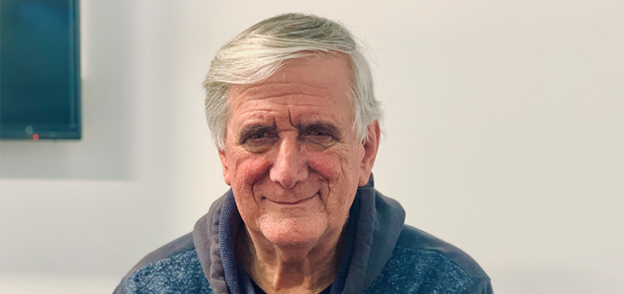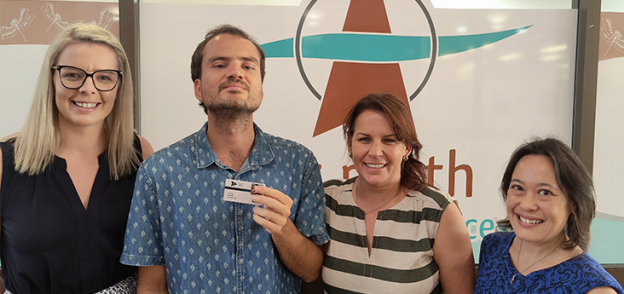
Author Archives: Monique


How Does Pegasus Data Verification Work?
You’ve decided it’s time to better manage your risk and the safety of your workforce – the companies, contractors, and people who work on your sites and projects.
You’ve said yes to partnering with the experts at Pegasus to get it done for you, and your platform is built and ready to go.
The first step is making sure every company and every person is qualified and trained to work for you.
First, Pegasus invites them to create a profile and register in your workforce management system. Next, they are prompted to upload licences, insurances, qualifications, and training.
But then what?
In most systems, there’s nothing to stop contractors from uploading whatever they want – which we explored here.
Except with Pegasus. When documents are uploaded, everything is verified. That thorough process is among our core and most valuable services, because verified data is trusted data. It’s correct, accurate. It’s how contractors prove they can work for you. It gives your company a complete view of the capability of your workforce.
But what does verified mean and how does it work? Here’s how verification with Pegasus keeps your workforce safe and your organisation protected from risk.
This is how it works.
After partnering with Pegasus—welcome aboard—we work together to decide what you need from your workforce to reach compliance and work safely for you. Enter our Data Verification Team.
What does the Data Verification Team do?
During the project planning stage, a representative from the Pegasus Data Verification Team is involved. They provide expert advice and best practice suggestions for business rules for you, our new client. This advice is built on years of industry experience and with hundreds of clients.
What are business rules?
Quite simply, business rules define your business activities. With Pegasus, business rules exist so everyone knows exactly what documentation is needed (and in what format) to work for specific clients.
That means defining the exact type of driver’s licence or medical, for example, which you will accept for a worker to complete a work role. These rules are specific, and they depend on your industry, scale and the nature of the work being done.
Our Data Verification Team partners with you in a thorough consultation process to build your business rules library.
Most importantly, the business rules are shared and easily accessible to anyone trying to gain access to your sites and projects – direct from your Pegasus system.
This level of transparency encourages collaboration and a shared duty of care between you and your workforce. Most importantly? Everyone understand exactly what they need to do to be compliant without needing to contact you, saving time and administration resources.
So business rules have been communicated and documents uploaded to be verified. When would a document be rejected?
There are a variety of reasons documents are rejected (which we’ve covered previously).
Your workforce need only compare the document they intend to provide with your business rules to know if they will be verified or not. The business rules tell the story and are exactly what Pegasus will check and compare before approval. No match? No mystery – it won’t be verified. Instead, it will be returned to the submitter with an explanation, a chance to resubmit – and a link to the business rule to get it right next time.

Is there any quality assurance of your verification service?
Absolutely! Quality is incredibly important to us. Our Data Quality and Assurance Team check a minimum of 10 per cent of documents approved by our Data Verification Team. Any ‘fail’ rate greater than 5 per cent triggers the sampling of additional data to check for any mistakes.
While we’re developing AI technology to speed up our verification service, every document submitted in a Pegasus system is currently checked by a person.
QA provides peace of mind for while also building the skills of our Data Verification Team.
We’re also keen to learn and improve. There is constant communication between our Data Services division and Contact Centre to look for how we can enhance our verification processes. Improvements can include something as simple as terminology changes, to reclarification of compliance requirements.
How long does it take for documents to be verified?
Our Data Verification Team process between 7,000 and 10,000 documents per week. They work from 7am through to midnight on weekdays. The time from when a document is received to verification is 24 to 72 hours.
This is based on service level agreements with our clients, but we’re also agile and respond to immediate needs for quick turnarounds, such as major shutdown periods or EOFY.
Does my business really need a verification service?
In our not so humble opinion, yes it does. One of the greatest risks to your business is contracting companies and workers who don’t have the correct or valid licenses and insurances, leaving you open to hefty fines or even prosecution if something goes wrong and you’re not protected.
Why risk it? Talk to the experts at Pegasus today.

Beginner’s Guide to the Work Health and Safety Act: How Do I Enact It?

Hear From The Experts – What Sets Pegasus Apart
When companies approach Pegasus for a complete workforce management solution, through our Company Pre-Qualification and Worker Competency Management products, it involves the uploading of several documents.
Licences, insurances, identification, qualifications – you name it, we collect it.
What makes Pegasus stand out from our competitors on the market?
Hear from the Experts
This week we spoke with Pegasus Client Account Manager Tennille Evans to find out the Pegasus difference.

Long-Serving Pegasus Trainer Heads Into Retirement
Robin Hopps is somewhat of an urban legend when it comes to training miners.
Having trained around two-thirds of all the OCE graduates in the Hunter, many a miner has been under his watchful eye as they work hard to further their careers. After a long career as Specialist Training Officer at Pegasus Robin is hanging up the curriculum as he moves into retirement. Before entering the wonderful world of retirement, we caught up with Robin to reflect of his long career.
“For over 26 years I’ve been training miners in the Certificate IV in Surface Coal Mining (OCE), starting way back in the 1990s,” said Robin. Robin started working with Pegasus back when the office was a little house in the heart of Singleton—a stark contrast to our head office in King Street, Newcastle.
“Things were simpler back then,” he reminisced.
Over such an impressive career, Robin has worked with many—if not all—mines in the Hunter Valley. “When it comes to local miners, if I haven’t trained them, chances are I’ve worked with them.”
When asked the highlight of his career, he didn’t skip a beat before saying “my pass rate” followed by a chuckle. Robin encouraged hard work, even among the miners considered ‘lazy’.
“The typical pass rate was probably 60 per cent, but on occasion I’ve been known to get the pass rate up to 90 per cent,” he said. For a grueling three-hour exam, made up of one hour legislation and two hours practical (plus an oral component), that’s impressive.
What’s your secret?
“We set out the course so they would pass. We put a lot of effort in as many have never done exams before, so it can be difficult,” said Robin. “We’ve been doing 12 days of preparation for the exam – the nearest anyone else comes to that is four. When you’ve done 12 days training, you are three times better off.”
Robin remembers the biggest change in his industry was the introduction of the national training unit in 2003, the result of which was a greater consistency of approach to training. The addition of women to the industry was another moment that stood out to Robin as they were having to work in a very male orientated environment.
“It was a pleasure to see them, working in the job after they’d graduated, handling the blokes. Those women had a lot of drive,” he said with a smile.
He’s also noticed graduates getting younger and younger.
“I used to train 35- to 45-year-olds, now with the boom in the industry I’m seeing candidates as young as 24. Back in the day the old blokes left school at 15 to go to work and they didn’t get around to enrolling in a course like this until much later, but not anymore.”
As Pegasus farewells one of its longest standing employees, an absolute master of mining, we asked what’s next?
“Making happy memories with the grandkids”, he said with a sparkle in his eyes.
It’s been an absolute honour having Robin as part of the Pegasus training team, we wish him well in all that he does in retirement.

Beginner’s Guide to the Work Health and Safety Act: What Is Your Duty?

Pegasus Rejects These Documents – Here’s Why

Beginner’s Guide to the Work Health and Safety Act: What Is It?

Why the Disability Skills Passport Matters
“There are so many genuine people chanting for change who aren’t being heard.”
Pegasus jumped at the opportunity to create a passport for workers in collaboration with National Disability Services (NDS). Why? “Because we know our software can manage the change that needs to occur within the industry,” says Jo Dixon, Pegasus Chief Sales Officer and Industry Program Owner.
Launched earlier this year, the Disability Skills Passport is a simple way for Support Workers to show proof of their training and qualifications. The Passport is being trialed among five service providers in Western Australia as part of a pilot before becoming available nationwide from July 2021.
Jo and Karlee Grayson, Industry Program Coordinator, spent a week with the participating service providers in April 2021. They travelled to Western Australia because creating the Passport is one thing—what we really need is to understand the value of the passport to service providers.
“We’re not a company that just sells software and walks away,” says Jo. “We dive deep into every organisation individually to understand how they run their business and how they manage their workforce compliance.”
The current state of the industry shows the need for an overhaul. Findings being released from the ongoing Royal Commission into Violence, Abuse, Neglect and Exploitation of People with Disability are harrowing.
In almost every conversation with people in the industry, Jo and Karlee hear the same name mentioned: Ann Marie Smith.
When police came to her Adelaide home on 5 April 2020, what they found can only be described as gross negligence. Ann Marie had cerebral palsy, leaving her unable to walk, eat or bathe herself.
Despite having a carer coming to her home every day, it is believed that Ann Marie had been left sitting in the same cane chair 24 hours a day for over a year. She died the following day despite doctors’ best efforts.
When reported by ABC News, they captured the overwhelming sentiment felt by those in the industry. “The case of an Adelaide woman who died after being left by carers in a cane chair 24-hours-a-day for a year shows the community still does not value people with disabilities as much as it should, advocates say.”
Currently, you don’t need to be qualified to care for someone as there is no legislated standard of training that must be met. Many workers enter the industry compassionately, after caring for a family member and realising the benefit of good care to quality of life.
The opportunity to show an online record of your qualifications and capabilities not only benefits the person being cared for, it allows workers to have their skills recognised. Service providers do what they can with what they have, but they’re often overworked, under resourced, and unable to manage worker compliance due to a lack of visibility.
“We simply don’t know who is trained and who isn’t which is risky. The thought of someone completely unqualified caring for vulnerable people is deeply unsettling,” says Jo.
What Pegasus is doing with the Disability Skills Passport is showing the industry what a future could look like with a competency framework in place for support workers. A future state we’re excited about.
“Every time you talk to anybody, any provider, it gives you so much more motivation and energy. It doesn’t matter if you’re working long days, it gives you a really good feeling—that you’ve got the power to create so much change. That’s what we’re doing,” said Karlee.
The emotion was palpable when Jo and Karlee were able to give Jesse the very first Disability Skills Passport card. The feeling that change is coming to the industry and that we get to play a part in it.
Download the brochure to learn more about the Disability Skills Passport.



